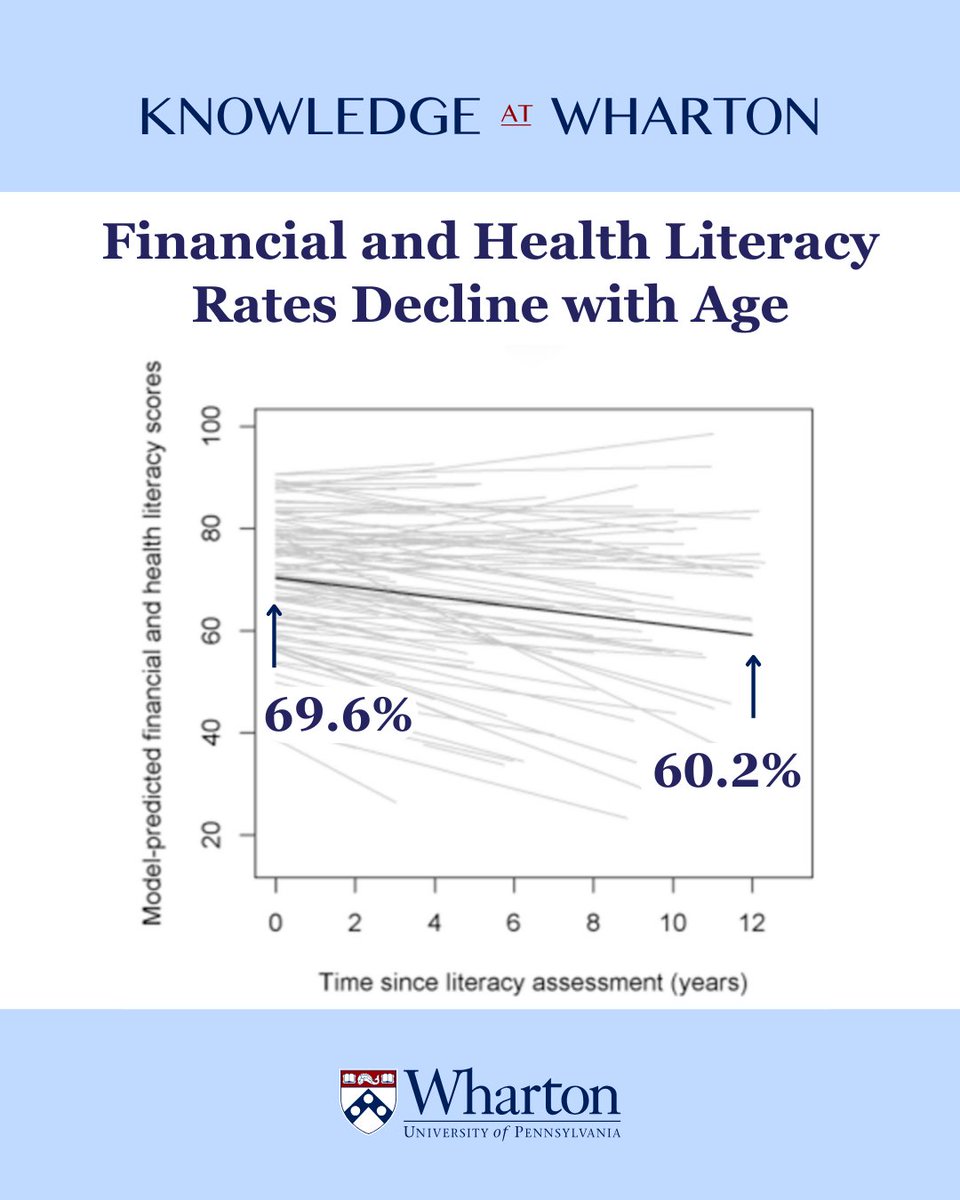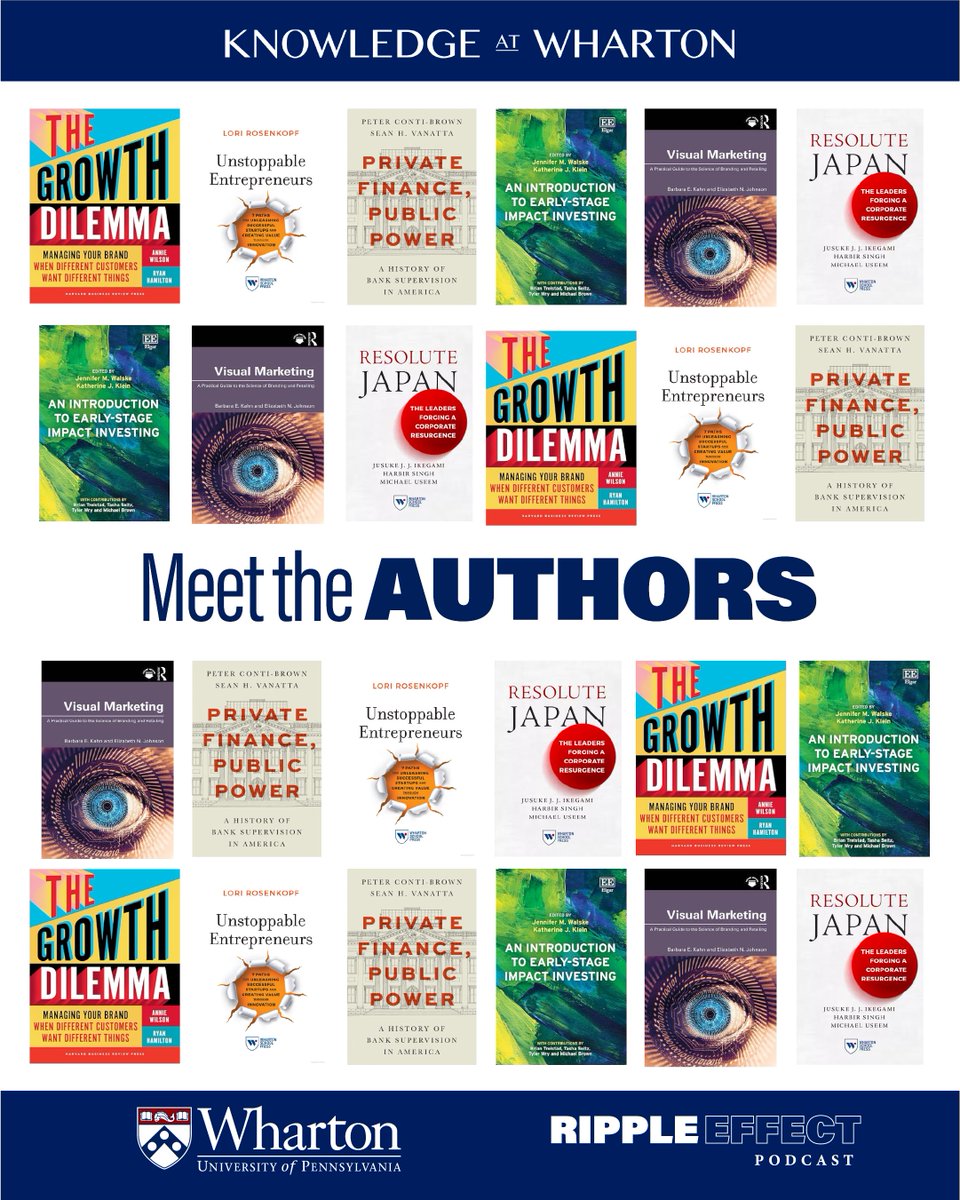
Knowledge at Wharton
@whartonknows
The online business journal of the @Wharton School at @Penn, sharing Wharton's intellectual capital with the world since 1999. #WhartonKnows
ID: 18682917
https://whr.tn/3oEjfim 06-01-2009 16:39:39
25,25K Tweet
113,113K Followers
2,2K Following


Why do some employees thrive while others burn out? According to Wharton School Press author @PaulaDavisSRI, one critical factor is autonomy – not just when or where people work, but how much control they have over their tasks, decisions, and growth. 📖: whr.tn/3Sfahcn


To conclude our Ripple Effect podcast's four-part "Wellness at Work" series, The Wharton School's Stew Friedman discusses his “Total Leadership” framework, explaining how leaders can support employees as whole people while still improving business outcomes. 🎙️: whr.tn/4kIEXip

In a study tracking more than 1,000 older adults over 12 years, financial and health literacy scores declined by about 1% annually. Read more about the research from The Wharton School & PRC's Olivia S. Mitchell alongside FINRA Foundation & @RushAlzheimers: whr.tn/3Z7QGP7


Looking to build your business knowledge this summer? The Ripple Effect podcast has you covered. The Wharton School authors will join us to discuss their books on everything from entrepreneurship to finance to marketing. Stay tuned for new episodes on Tuesdays: whr.tn/rippleeffect


How has Japan’s stock market hit record highs after 30 years of decline? To open our Ripple Effect podcast's Meet the Authors series, The Wharton School's Harbir Singh & Michael Useem discuss their book, Resolute Japan, highlighting leadership lessons from Japan: whr.tn/4jw3hTi


In a rapidly changing world, the ability to change your mind isn’t a weakness – it’s a leadership advantage. The Wharton School professor Adam Grant explains how to reassess your assumptions to make better decisions in this #WhartonExecEd Nano Tool for Leaders. whr.tn/3SzU4OX

Customer service agents who spoke just a bit more slowly saw a 7% boost in customer satisfaction, a study co-authored by The Wharton School's @J1Berger found: whr.tn/45I2pYx Slower speech signals thoughtfulness and care, helping customers feel heard, says Berger.


Impact investing funds often emphasize social good externally, but a The ESG Initiative at the Wharton School brief shows they often prioritize financial performance: whr.tn/4dVY06I Researchers @Katherine_Klein, Tyler Wry, and Michael Brown say better measurement is key to increasing transparency.


How do you fix bias in economic forecasts? The Wharton School’s Sean Myers introduces a new tool that uses just two key indicators – one-year GDP growth and the three-month Treasury bill – to adjust for distortions across dozens of macroeconomic forecasts. whr.tn/4dR45RR

"One brand's conflict could be another brand's opportunity." On a new episode of our Ripple Effect podcast's "Meet the Authors" series, The Wharton School's Annie Wilson offers marketing tips from "The Growth Dilemma," her book with @emorygoizueta's Ryan Hamilton: whr.tn/4dWPB2x

Want More Women in Leadership? Tell Them They’re Losing Out A great summary of new The Wharton School research led by Sophia Pink knowledge.wharton.upenn.edu/article/want-m…

Why does Fed independence matter? The Wharton School's Peter Conti-Brown warns that undermining its independence –especially through public pressure or political loyalty tests – risks eroding public trust and compromising its ability to act in the public interest: whr.tn/3ZsZqiZ



Food delivery apps like DoorDash and Uber Eats offer consumers convenience, but for many restaurants, they’re a growing threat. The Wharton School's Manav Raj finds that they thin profit margins and require increased efficiencies from restaurants to survive: whr.tn/4jSz7tV


Americans' trust in science is at its lowest point in nearly 50 years. Neuroscientists Michael Platt (The Wharton School) and Cory Miller (UC San Diego) argue that scientists need a new playbook, prioritizing communication, public engagement, and inclusion: whr.tn/4l9Ee9X

AI is reshaping creativity by combining machine-generated insights with human judgment. The Wharton School's Cornelia Walther explains how businesses can foster “hybrid creativity” by building workflows & cultures that integrate human-AI collaboration effectively: whr.tn/44mLWbg




